
Nine things to know about the World Series-bound Texas Rangers
It was 12 years ago Friday when David Freese stepped to bat for the St. Louis Cardinals. His name lives in infamy in Arlington, Texas, where the World Series starts Friday.
The World Series was one out from ending in 2011, one strike away from the Texas Rangers winning their first championship. Freese delivered a two-run triple, tying the score and sending the game into extra innings.
In the 11th inning, Freese stepped to the plate again, socking a walkoff home run that drove Busch Stadium into delirium and forced Game 7. The Cardinals rolled to a 6-2 victory, and the Rangers have not returned to the World Series since.
Until now.
The Rangers, born as the Washington Senators in 1961, are one of six major league teams never to win the World Series. This is their chance to defrost the Freese Curse and end a championship drought that has endured through two home cities, five home ballparks, and six decades.
The other teams never to win the World Series? The Colorado Rockies, Milwaukee Brewers, Seattle Mariners, Tampa Bay Rays — and the team that boasted a higher payroll this year than any team outside New York City, your San Diego Padres.
Here are nine things to know about the Rangers heading into Game 1 of the World Series on Friday at 5:03 p.m. PDT:
1. Corey Seager, at home again
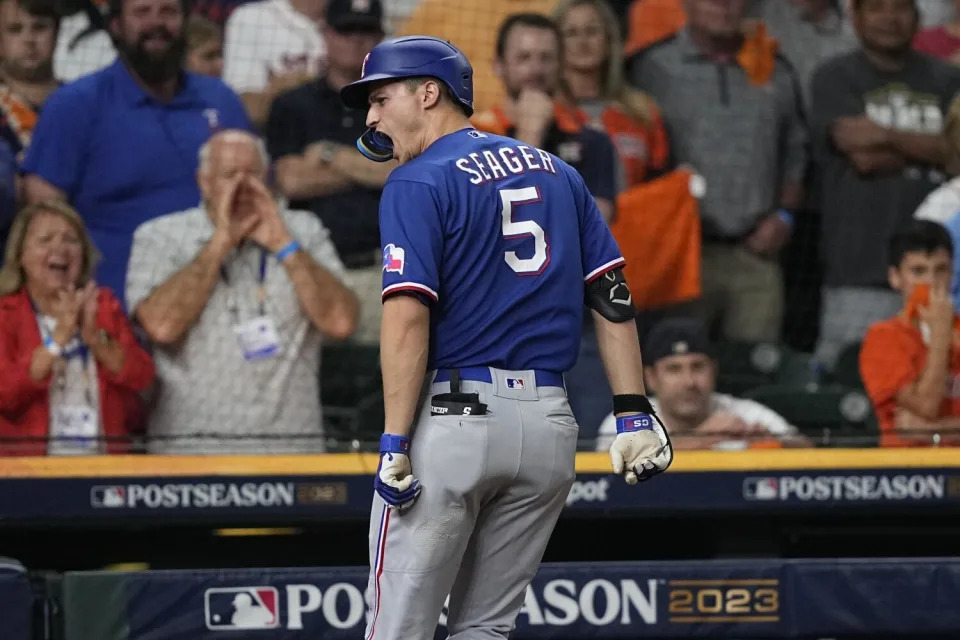
The Rangers have never won the World Series, but their shortstop won the World Series Most Valuable Player award in Arlington, for the home team.
How? In 2020, when the pandemic kept almost all stadiums closed all season, Texas authorities let fans into the Rangers’ new ballpark to enjoy the postseason. The Rangers did not make the playoffs that year, but the Dodgers — as the team with the best record that season — served as the home team for division series, league championship series and World Series games in Arlington.
Seager batted .350 in the three rounds in Texas, with seven home runs in 16 games. He batted .400 in the World Series, hitting two home runs and reaching base 15 times in 27 plate appearances. He was selected the MVP of the National League Championship Series and the World Series.
Seager, who signed with the Rangers as a free agent two years ago, is batting .267 in four postseason games in Arlington this year, with two home runs.
2. From DFA to MVP: Adolis García
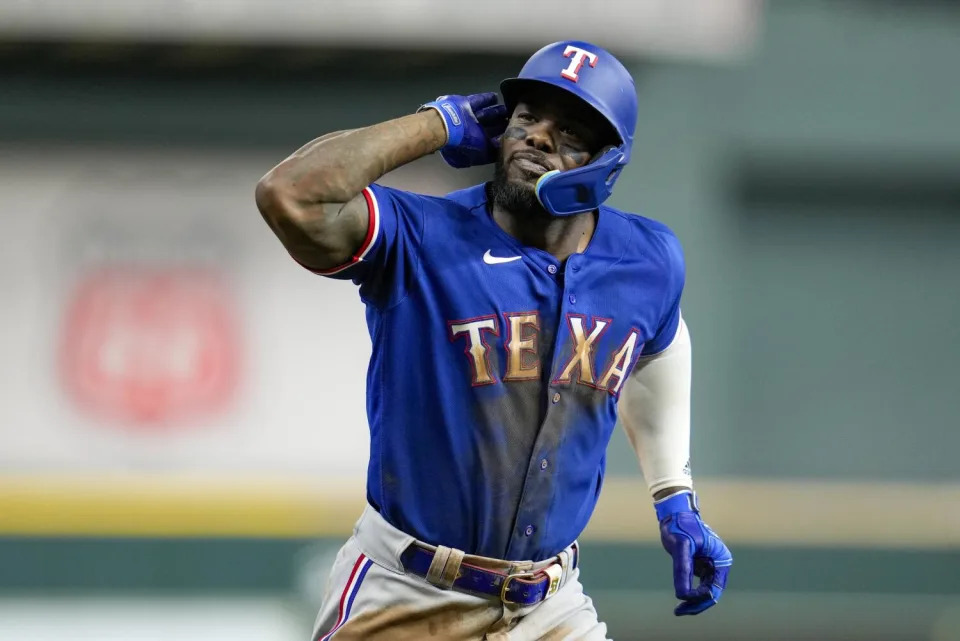
If the Astros had returned to the World Series, you would have been deluged with another autumn of reminders that the Dodgers acquired a middle reliever named Josh Fields for a prospect named Yordan Alvarez, who developed into one of the elite sluggers in the major leagues. Alvarez hit four home runs by himself in the division series this year; the Dodgers as a team hit one.
Still, Fields put up a 2.61 ERA in three seasons in Los Angeles, so the Dodgers got something out of the deal.
The Cardinals got nothing for Adolis García, removing him from their roster in 2019, when he was a 26-year-old outfielder with 17 major league at-bats. The Rangers picked him up, cut him themselves two years later, then re-signed him to a minor league contract.The rest is history: 97 home runs in three seasons, and a historic American League Championship Series. He hit ,357, with five home runs. He drove in 15 runs, a record for any postseason series.
In 30 plate appearances, he was never walked. Yeah, that might change in the World Series.
3. Old guys rule
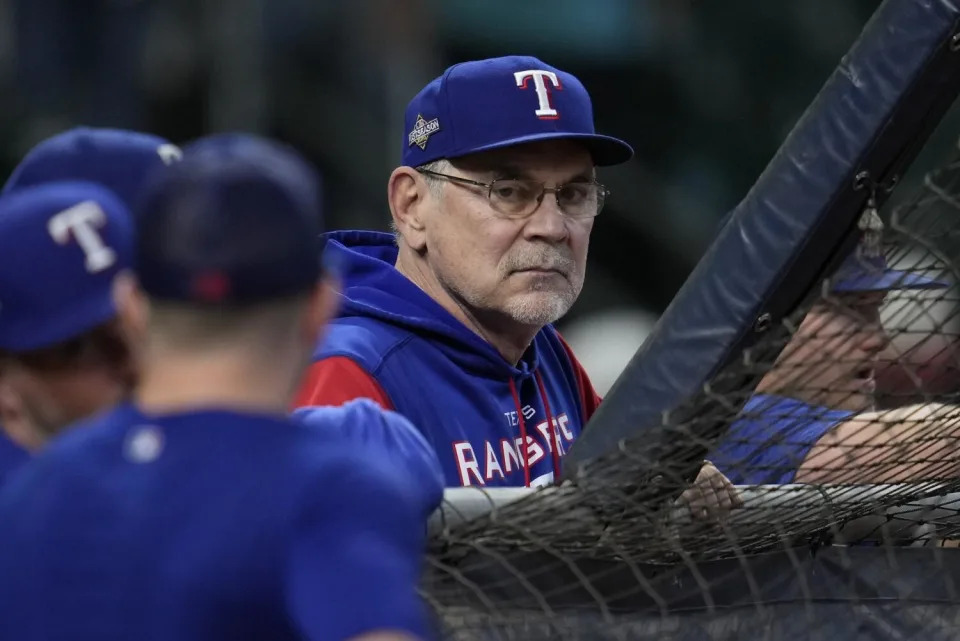
The pendulum might have swung toward young and inexperienced managers in recent years, yet the last two World Series winners have been anything but: Brian Snitker, 66, with the 2021 Atlanta Braves; and Dusty Baker, 73, with the 2022 Houston Astros.
Comes now Bruce Bochy, 68, who led the Rangers to the World Series in his first year in Texas after a three-year sabbatical. Bochy first managed in the World Series at 43, with the 1998 Padres, a team that featured Tony Gwynn, Ken Caminiti, Kevin Brown and Trevor Hoffman.
Bochy is one of 12 managers with at least 2,000 regular-season wins. So is Baker. The other 10 are in the Hall of Fame.
Bochy will be too, largely because he led the San Francisco Giants to three World Series titles within five years. If the Rangers win, Bochy will tie the Dodgers’ Walter Alston and the Yankees’ Joe Torre with four championships. No manager in the past half-century has won more.
4. Shopping spree pays off
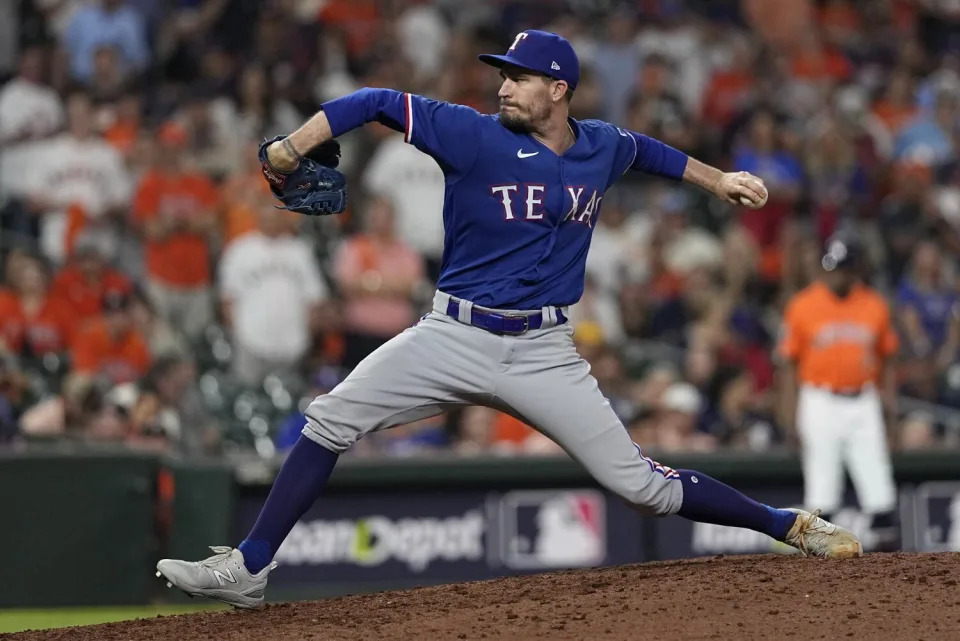
The Yankees, Mets and Padres failed to make the playoffs, and the Dodgers, Braves and Blue Jays were vanquished along the way. The Brewers, Marlins, Orioles and Rays won while thrifty, and the Diamondbacks are in the World Series.
So money doesn’t matter? Well … not quite. Six teams in the top 10 in payroll made the playoffs, as did six of the other 20.
The Rangers’ spending transformed them from a 102-loss team in 2021 to a World Series entrant in 2023. Two winters ago, they spent $500 million on Seager and second baseman Marcus Semien. Last winter, they spent $264 million on four starting pitchers: Jacob deGrom, Nathan Eovaldi, Andrew Heaney, and Martin Perez. In July, they spent $22.5 million more to acquire another starting pitcher: Max Scherzer.
Diamondbacks closer Paul Sewald, traded in July from AL West contender Seattle to Arizona, said the Mariners noticed how the Rangers had spent to win and the Mariners had not.
“When your division rival literally takes you out at your home stadium like that,” Sewald told the Chris Rose Podcast before Game 3 of the ALCS, “and all they did was go from last place to two games away from the World Series by spending money, it hits you harder.
“They went from a team that we used to just wax to taking our spot in two years by spending. It can be spent irresponsibly. Look at New York and San Diego. Or it can be spent really, really well.”
5. Once upon a Dodger time
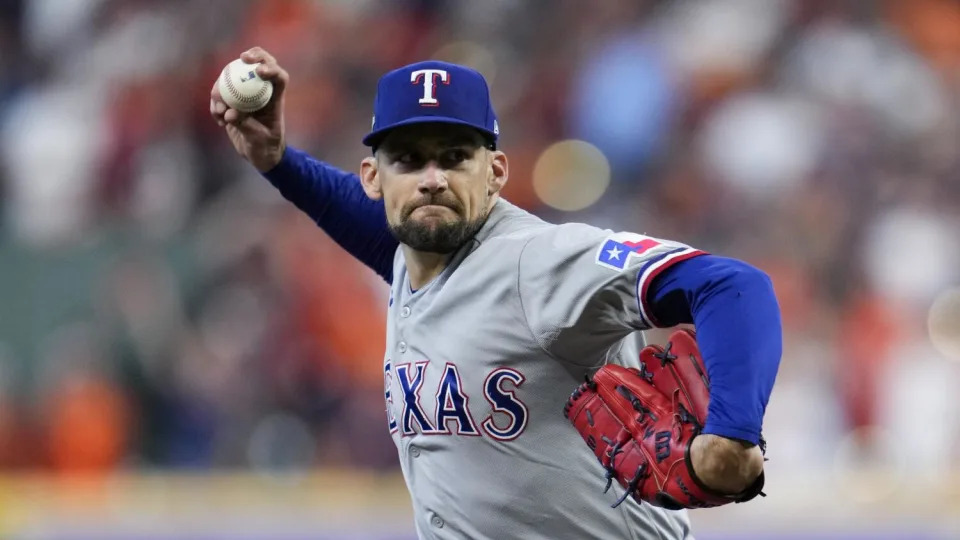
In 2012, when Mark Walter’s Guggenheim Baseball group bought the Dodgers, the mandate was to win as soon as possible. The big trade that year: first baseman Adrián González from the Red Sox, in a nine-player deal in which the Dodgers surrendered two top pitching prospects and added a quarter-billion dollars to their payroll.
One month earlier, the Dodgers had traded for another All-Star, shortstop Hanley Ramirez from the Miami Marlins. The prospect price: pitcher Nathan Eovaldi, still going strong, nine years after Ramirez last played for the Dodgers.
Eovaldi, an All-Star with the Boston Red Sox two years ago and with the Rangers this year, is 4-0 with a 2.42 ERA in his four postseason starts. He has struck out 28 and walked four.
The last time the Dodgers won a World Series game at Dodger Stadium, Eovaldi was the losing pitcher. On Oct. 26, 2018, he threw the last pitch of an 18-inning game that lasted 7 hours and 20 minutes. Max Muncy hit it for a walkoff home run, and the Dodgers beat the Red Sox. Boston won the next two games at Dodger Stadium, clinching the World Series championship.
6. Six degrees of Trevor Bauer
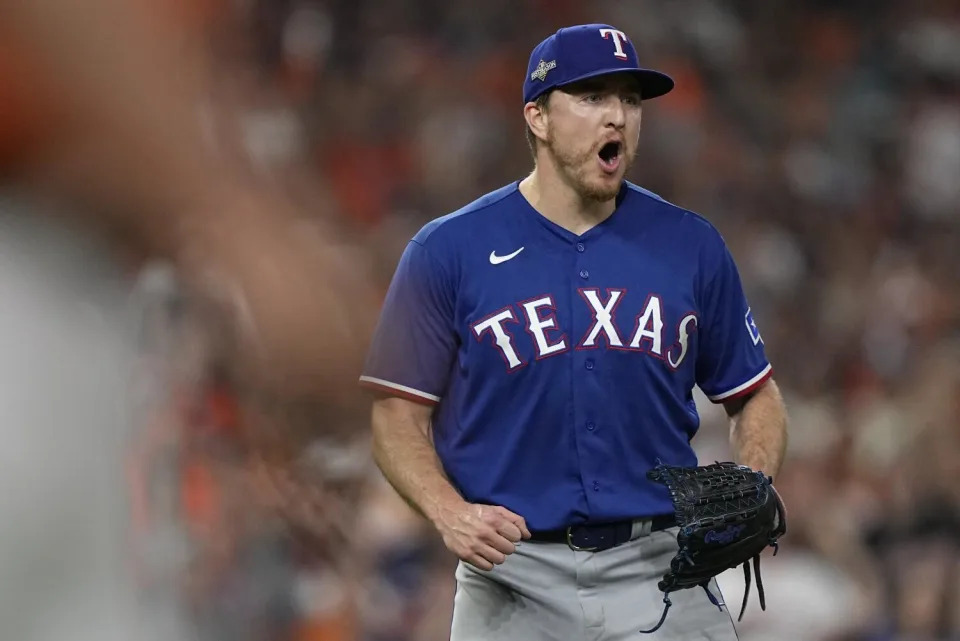
The Rangers have three trusted relievers. The closer is José Leclerc. The setup man is Aroldis Chapman, the seven-time All-Star closer for the Yankees and the Cincinnati Reds.
The third high-leverage reliever is Josh Sborz, whose postseason ERA (1.04) belies his regular-season ERA (5.50) and career ERA (5.08).
The Dodgers drafted Sborz in 2015, in a year Walker Buehler was their top draft pick. He posted a 6.08 ERA in 11 appearances with the Dodgers in 2019 and 2020. In 2021, the Dodgers designated him for assignment to open a spot on the 40-man roster, then traded him to Texas for a minor league pitcher who never advanced past Class A.
The player for whom the Dodgers needed to clear a roster spot? Trevor Bauer.
7. Whither Scherzer?
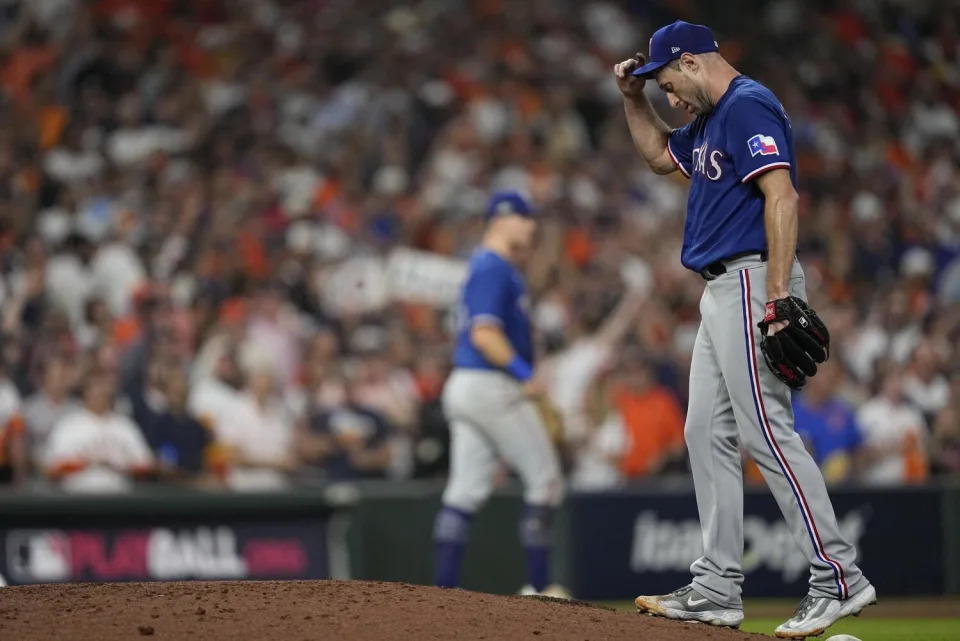
In July 2021, with Bauer removed from the roster and put on indefinite leave, the Dodgers had until the end of the month to upgrade the rotation. They did, trading for Scherzer, the three-time Cy Young Award winner.
He went 7-0 with a 1.98 ERA for the Dodgers in the final two months of the regular season, then put up a 1.46 ERA over the first two rounds of the playoffs. In the NLCS, he did not survive the fifth inning of his first start, and he did not make his second start because of injury.
In 2022, he made one playoff start for the Mets, and he did not survive the fifth inning against the Padres.
In 2023, after he missed a month because of injury, the Rangers activated him for the ALCS. He pitched four innings in one start and 2 2/3 in another — the latter an elimination game — and it remains to be seen how the Rangers might use him and what they might reasonably expect of him in the World Series.
8. Marcus, Iron Man
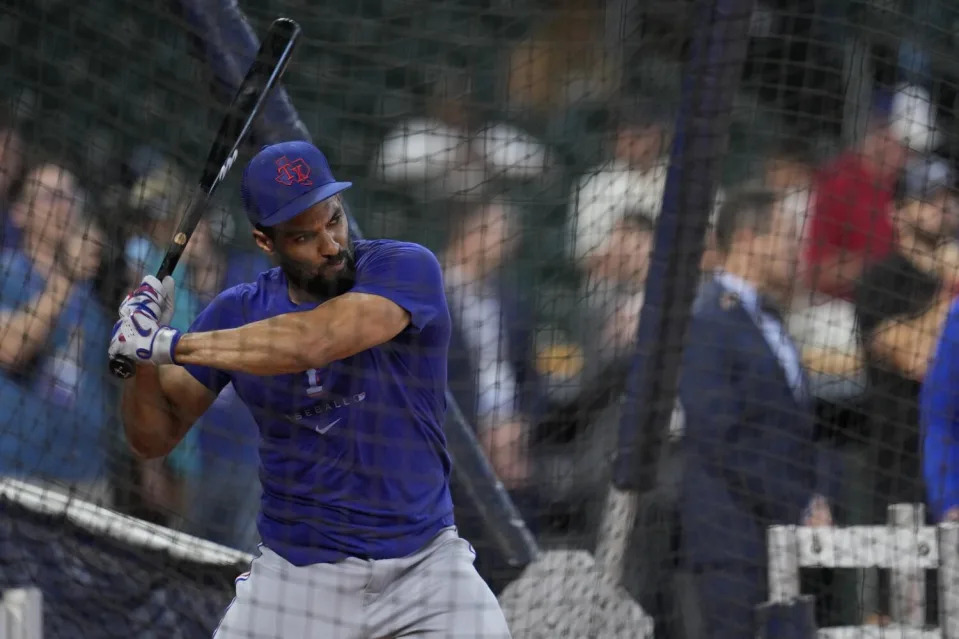
The concept of load management got so out of whack in the NBA that the league just instituted rules to manage the use of load management. The concept is not widely discussed in baseball, because a 162-game season means a day off now and then is just good sense.
Except for Marcus Semien, the Rangers’ second baseman.
He played all 162 games this season, one of four major leaguers to do so. Of the 648 games his teams have played in the last four full seasons, he has played in 647 of them.
In his eight full seasons, he has played fewer than 155 games just once.
He has finished third in American League MVP voting twice — in 2019, behind Mike Trout and Alex Bregman; and in 2021, behind Shohei Ohtani and Vladimir Guerrero Jr.
9. Something about the Angels!
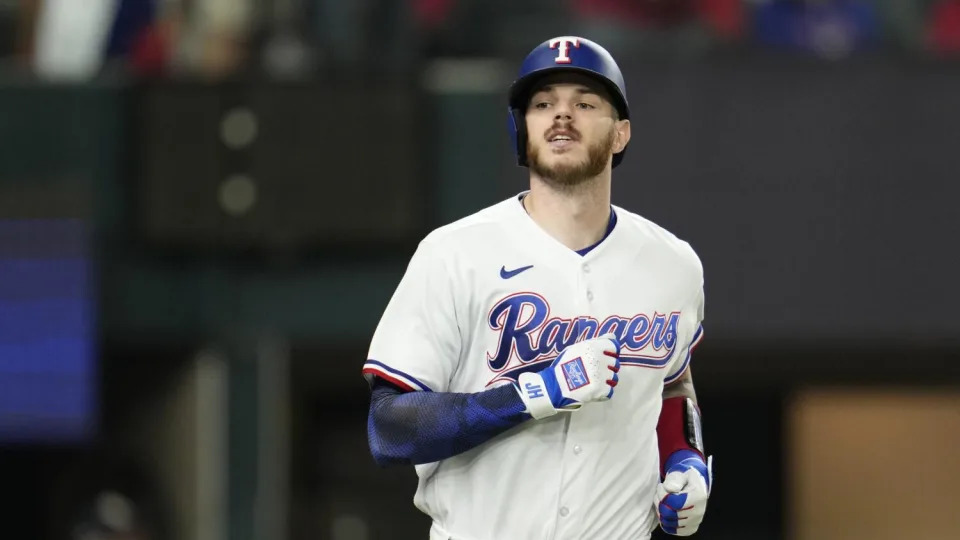
Quick question: Who was the starting catcher for the AL in this year’s All-Star Game?
Answer: Jonah Heim, one of six Rangers to play in the game. All six — Heim, Eovaldi, García, Seager, Semien and third baseman Josh Jung — were on the field in the second inning, making the Rangers the first team since the 1951 Brooklyn Dodgers to have six players on the field at the same time in the All-Star Game.
That’s not why we’re talking about Heim, though. We’re talking about Heim because of the Angel Stadium scoreboard crew. In May, when the Rangers visited Anaheim, here was the fun fact the scoreboard displayed about Heim: “Has a daughter, however missed an opportunity and did not name her Ana.”

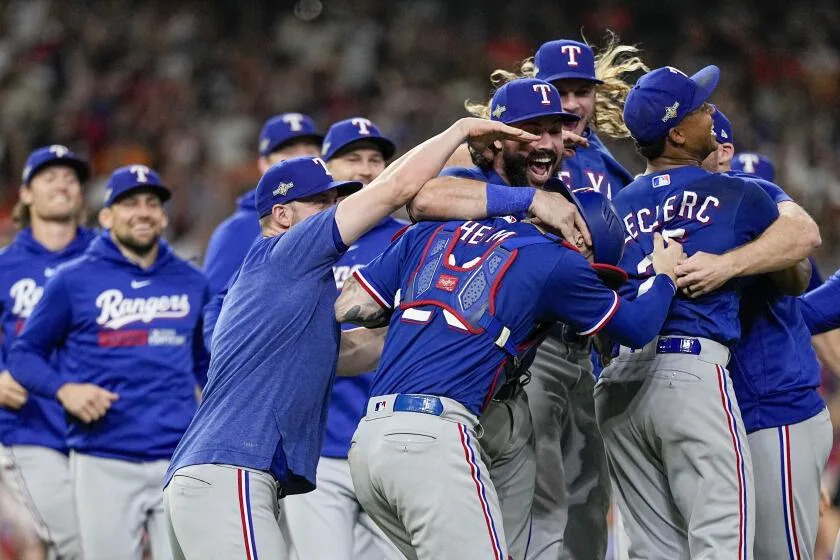
Leave a Reply